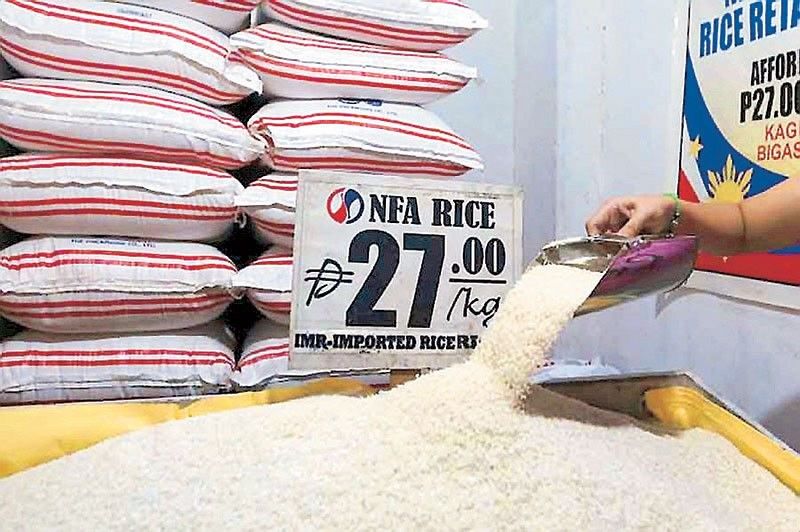NFA in the spotlight anew

As government moves forward with liberalized trade (First of two parts)
MANILA, Philippines — “Pabili nga po ng bente siyete.”
If you understand what this means, then you are familiar with NFA rice. NFA, which stands for National Food Authority, has been a staple – like rice itself – in Filipino households for a long time.
The NFA used to sell rice at P27 per kilogram and P32 per kg, way lower than prevailing market prices of roughly P40 to P50 per kg. However, it was selling at a loss.
As part of its previous mandate, the agency buys palay or unmilled rice from local farmers at a so-called support price, which allows the latter to earn a profit.
The NFA mills the palay and sells the rice below production costs to provide consumers with “affordable” staple in the market.
In simple terms, the NFA buys at a high price and sells it at a low cost.
And at times that it was unable to procure palay from local harvest, the agency turns to imports to fulfill its price stabilization role. Still, it buys high then sells low.
Over the years, the agency accumulated debt in fulfilling its mandate, which it once noted was a result of the government’s “commitment” and “policy” of making affordable rice available to the public.
At the end of 2018, the NFA had a debt of about P140 billion. The following year, its powers to import rice and sell commercially in the market were clipped by Republic Act 11203 or Rice Trade Liberalization (RTL) law.
Today, that debt is down to about P106 billion.
The debt incurred by the NFA because of its buy-high-sell-low policy was considered a burden to Filipino taxpayers, particularly for the poor who were deprived of social services, according to the Philippine Rice Research Institute.
It should be noted that it is taxpayers’ money that is used to subsidize the NFA rice, allowing it to be sold as low as P27 per kilogram.
The liberalization
The economic managers of the Duterte administration worked its way in liberalizing the country’s rice industry following a spike in rice prices in 2018. Rice prices surged past P50 per kilogram due to supply shortages caused by lackluster harvest and delayed imports by the NFA.
The crisis coincided with mounting pressure from trade partners on the Philippines to fulfill its commitment to convert its quantitative restriction (QR) on rice imports into tariffs. QR refers to the limited amount of imports that is being allowed to enter by a country.
Back then, the NFA had the sole authority to regulate and oversee rice imports in the country.
The NFA regularly allows the importation of a minimum volume of rice as part of the country’s trade commitments. Anything beyond that minimum volume would be subject to the approval of the NFA Council, the highest policy-making body of the interagency.
In fact, Sen. Cynthia Villar herself admitted that the economic managers went to her and sought for the abolition of the NFA. Villar said she opposed that idea, fearing the backlash she would receive.
Back then, economic managers promised that liberalizing the rice industry would result in cheaper staple for Filipinos.
They said that opening up the domestic rice market to foreign competition through easier and freer import rules would slash retail prices by seven pesos a kilo.
More so, removing the power of the NFA to sell rice would lessen government intervention in the market, resulting in better competition among private players. And in doing so, the NFA slashes its debt.
Under the RTL law, the NFA has been reduced to a rice buffer stocking agency. It means that the agency would still buy and mill palay at a support price and keep the rice as the government’s stocks for emergency and calamity use. No more selling at a loss. No more NFA rice in the market.
(To be continued)
- Latest
- Trending





























